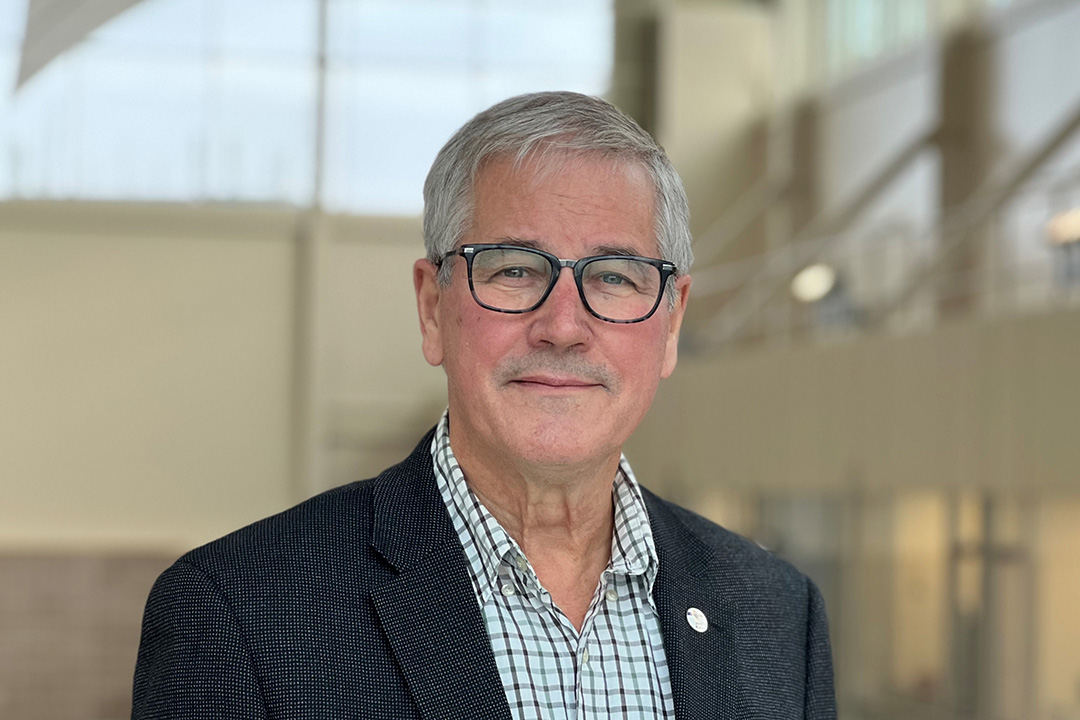
Getting to Know: Dr. John Gordon
A Q-and-A with Dr. John Gordon (PhD), a Professor in the Division of Respirology, Critical Care and Sleep Medicine and a Special Advisor – Clinical Research, Office of the Vice-President Research, University of Saskatchewan (USask).
Could you provide a description of your background?
I did my BSc in Biology (1977) at USask, and three years in immunology at Vanderbilt University (1977-1980) before completing my PhD at USask (1984). I did fellowships at the National institute for Medical Research, Mill Hill, London (1984-87) and the Department of Pathology at Harvard Medical School (1987-91) before returning to Usask as an Associate Professor.
What is your area of research?
We have focussed on the pathologic mechanisms in allergic and inflammatory diseases and on developing therapeutics for these conditions. Specifically, we examined the cells and mediators that underscore allergies and developed therapeutic approaches that can switch off allergic responses, replacing them with regulatory T cell responses. At the same time, we studied the mediators that drive neutrophilic inflammation (e.g., bronchopneumonia) and developed therapeutics that can effectively antagonize those responses.
Could you tell us about your ‘big moments of research’?
Our big moments have included both ‘ups’ and ‘downs’. For example, we first reported that mast cells provide a deep reservoir of immunologically important cytokines. And, that we could generate dendritic cells from peripheral blood monocytes, and that these can convert allergen-specific type two T cells into regulatory T (Treg) cells that very effectively suppress allergic responses. These projects brought us many successive years of CIHR funding.
In another big victory we used rational design to engineer an antagonist of the mediators that drive neutrophilic inflammation. We patented the ‘G31P’antagonist and established a start-up to fully ‘humanize’ this agent, which we subsequently licensed out for commercial development. G31P can essentially eliminate pathology in an array of inflammatory diseases (e.g., aspiration pneumonia, ischemia-perfusion injury). Because G31P’s targets (e.g., interleukin-8/CXCL8) are also important drivers for an array of cancers, it is also highly effective in blocking primary tumour growth and metastasis, angiogenesis and the acquisition of chemotherapeutic resistance.
Do you have any advice for early-career researchers?
Our foray into neutrophilic inflammation was rather serendipitous, having been triggered by our lack of success in meeting the initial objectives of another early allergic diseases immunopathology study. It took us a couple of years to skirt that particular allergic diseases research hurdle, but ultimately we prevailed both there and with developing G31P. As such, I believe that if you have an idea and you have done your due diligence in terms of its feasibility, you should go all out to pursue that idea.
Seek the advice of successful colleagues or friends of friends who know the research infrastructure systems and use their wisdom. When you have problems, similarly, seek input from all sources, but recognize that unexpected and sometimes odd things can happen seemingly for no reason – do not give up!
